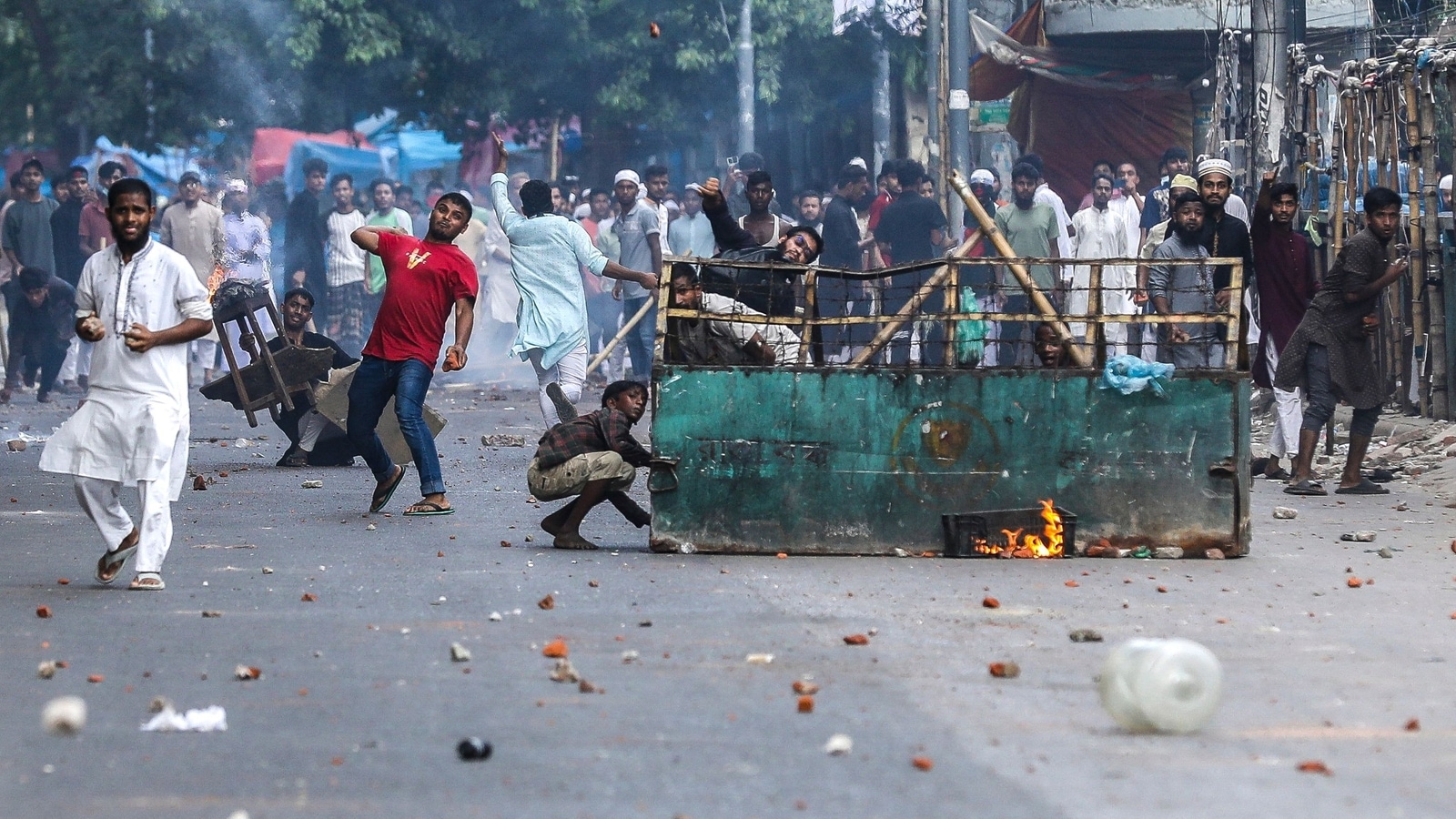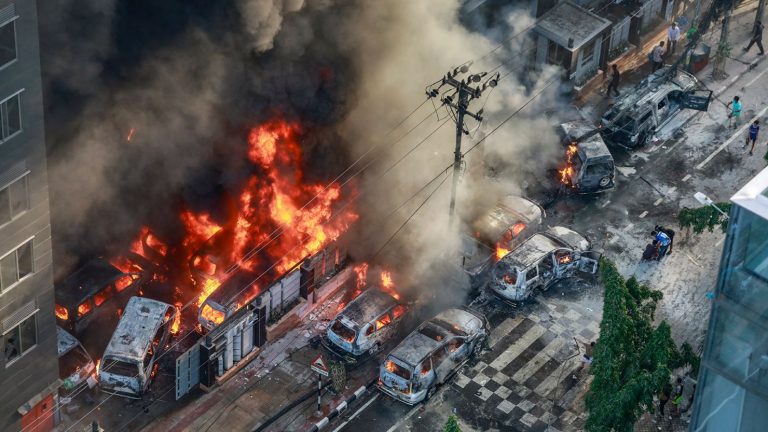Bangladesh Protest Leaving Many Dead

Overview:
Bangladesh has been gripped by violent protests over the past week, leading to a tragic loss of life and widespread disruption. The protests, initially sparked by opposition to a government job quota system, have escalated into a broader movement against economic hardship and political grievances.
Background:
The protests began after the High Court reinstated a quota system that reserves 30% of government jobs for family members of veterans from the 1971 War of Independence.
Escalation of Violence:
The situation took a violent turn as student protesters clashed with police and government supporters. The clashes have resulted in over 100 deaths and also thousands of injuries. The government has responded by imposing a nationwide curfew and shutting down universities and colleges indefinitely.
Government Response:
In an attempt to quell the unrest, the government has deployed military personnel and also police to patrol the streets of Dhaka and other major cities. A near-total internet blackout has been imposed, disrupting communication and daily life. The curfew was briefly lifted to allow residents to purchase essential supplies, but the situation remains tense.

Public Reaction:
The heavy-handed response by the government has drawn criticism from both domestic and international observers. Many citizens are frustrated by the economic challenges and feel that the government is not addressing their concerns.
Current Situation:
As of now, the protests show no signs of abating. The government has not indicated when the curfew will be lifted, and the internet blackout continues to hinder communication. The death toll is expected to rise as clashes between protesters and security forces persist.
Economic Disruption
- Businesses and Markets
- Also Transportation: This has made commuting difficult for workers and students.
Education
- School and University Closures: The government has shut down universities and colleges indefinitely, disrupting the education of thousands of students. Many students are also participating in the protests, further impacting their studies.
Communication
- Internet Blackout: The government has imposed a near-total internet blackout, making it difficult for people to communicate and also access information. This has also affected businesses that rely on the internet for their operations.
Daily Activities
- Curfews: The imposition of curfews has restricted people’s movement, making it challenging to carry out daily activities such as shopping for groceries and attending work.
The ongoing protests in Bangladesh highlight deep-seated issues within the country, including economic insecurity and political dissatisfaction. The international community is also closely monitoring the developments, hoping for a peaceful resolution to the crisis.

